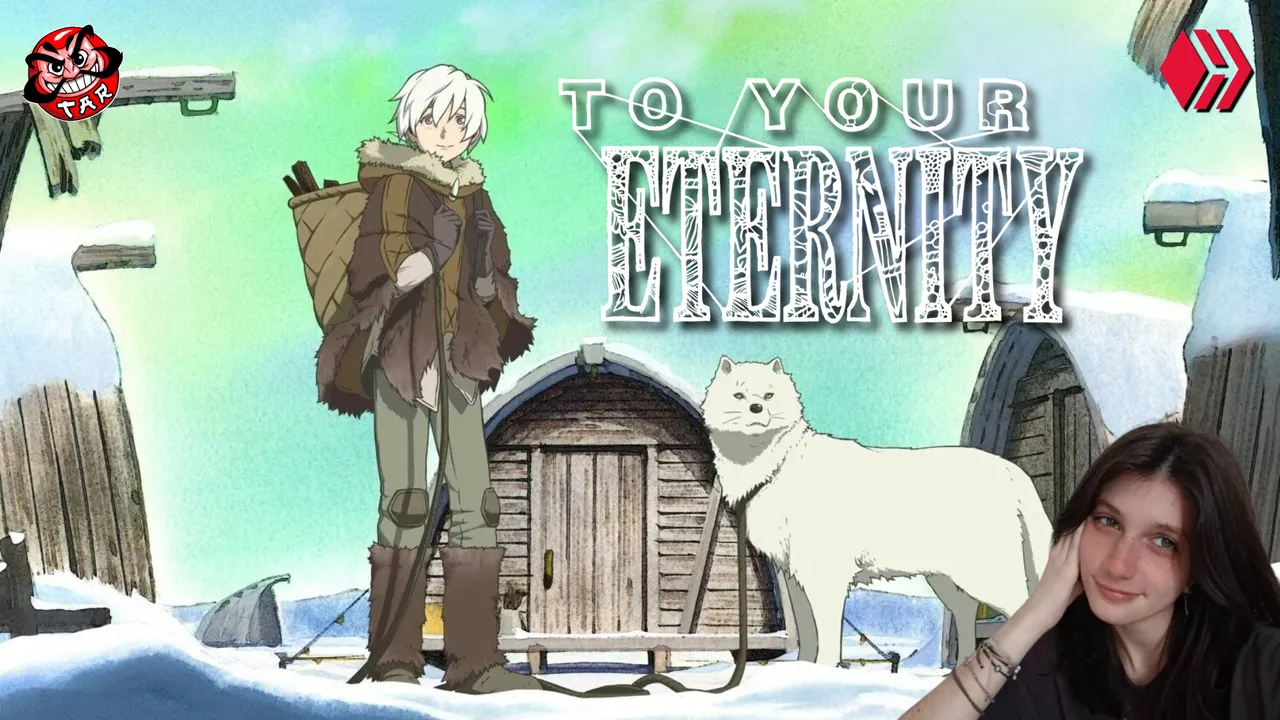

Hola, hola, querida comunidad de Hive
¿Cómo están el día de hoy? Yo muy bien, bastante contenta de comentarles acerca de un anime que comencé a ver en casa de una amiga, donde sinceramente no pensé que lo terminaría viendo hasta el final. Ese día que lo vi en su casa, no lo terminamos, y luego, por ciertas razones, lo terminé en mi casa, y tengo bastantes cosas que comentar. Sin mas, Quiero mostrarles un poco de qué va este anime y, ya que estamos, recomendárselo.
How are you today? I'm very well, quite happy to tell you about an anime I started watching at a friend's house, where I honestly didn't think I would end up watching it until the end. That day that I watched it at her house, we didn't finish it, and then, for certain reasons, I finished it at my house, and I have quite a few things to comment. Without further ado, I want to show you a little bit of what this anime is about and, while we're at it, recommend it to you

To Your Eternity: Resumen
To Your Eternity nos muestra a Fushi, un ser inmortal que se inicia como una esfera viva arrojada a la Tierra. Su finalidad es sencilla pero intensa: examinar y recolectar datos. Inicialmente, Fushi solo tiene la habilidad de replicar lo que toca, convirtiéndose en una piedra, después en musgo y finalmente adoptando el aspecto de un lobo que había sido el único compañero de un chico solo. Este arco inicial es conmovedor, presentándonos las primeras enseñanzas de Fushi acerca de la vida, la muerte y el sufrimiento de la pérdida, aspectos que se transformarán en constantes durante toda su vida. En cada encuentro, ya sea con seres humanos o con la naturaleza, Fushi asimila sus vivencias, sus sentimientos y, sobre todo, sus formas, progresando no solo en términos físicos, sino también en su entendimiento de lo que implica estar vivo.
To Your Eternity shows us Fushi, an immortal being who starts out as a living sphere cast to Earth. Its purpose is simple but intense: to examine and collect data. Initially, Fushi only has the ability to replicate what he touches, becoming a stone, then moss, and finally taking on the appearance of a wolf that had been the sole companion of a lonely boy. This initial arc is poignant, introducing us to Fushi's early teachings about life, death and the suffering of loss, aspects that will become constants throughout his life. In each encounter, whether with humans or with nature, Fushi assimilates his experiences, his feelings and, above all, his ways, progressing not only in physical terms, but also in his understanding of what it means to be alive.
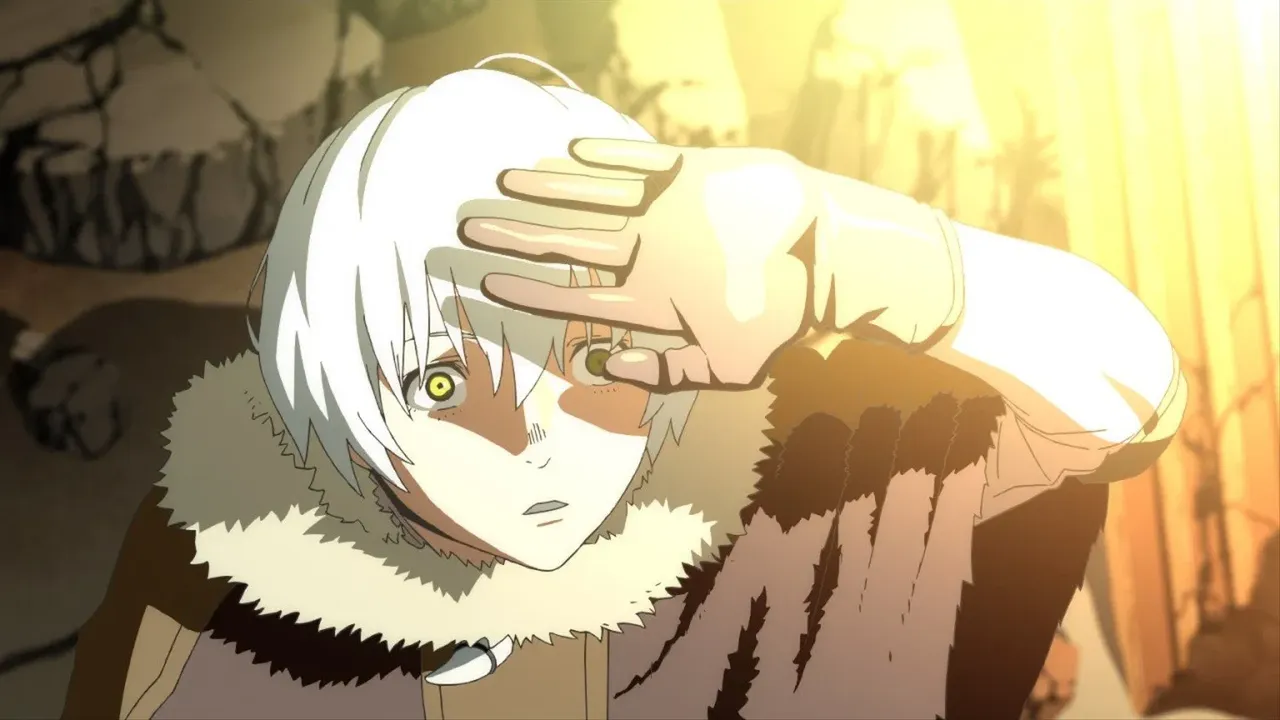
Conforme Fushi progresa a lo largo de los siglos, su travesía se caracteriza por numerosas interacciones con la humanidad, cada una dejando un impacto indeleble. Conoce a individuos de cualquier edad y procedencia, desde la audaz March, que le instruye sobre el valor de la familia, hasta la sabia Parona, que le enseña sobre la relevancia de salvaguardar a los demás. No obstante, su inmortalidad es un arma de doble filo; a pesar de no poder morir, tiene que presenciar la muerte de todos aquellos a quienes llega a amar, repetidamente. Esta constante pérdida, junto con la amenaza persistente de los Knockers, seres que intentan robar sus recuerdos y formas, fuerza a Fushi a madurar y a encontrar un propósito más allá de la mera observación: proteger a la humanidad y sus memorias.
As Fushi progresses through the centuries, his journey is marked by numerous interactions with humanity, each leaving an indelible impact. He meets individuals of every age and background, from the bold March, who instructs him on the value of family, to the wise Parona, who teaches him about the relevance of safeguarding others. However, his immortality is a double-edged sword; despite not being able to die, he has to witness the death of all those he comes to love, repeatedly. This constant loss, along with the persistent threat of the Knockers, beings who try to steal his memories and forms, forces Fushi to mature and find a purpose beyond mere observation: to protect humanity and its memories.
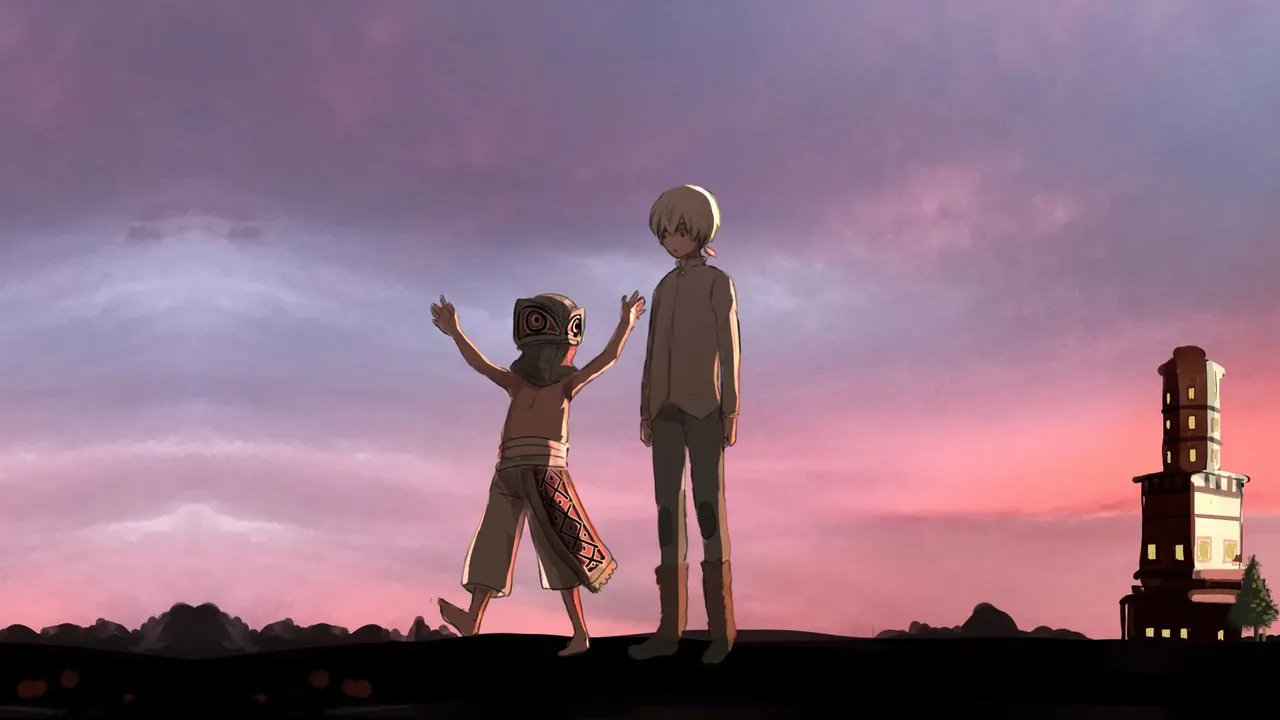
La serie concluye con Fushi tomando un papel más protagónico en la batalla contra los Knockers, mientras simultáneamente intenta encontrar una forma de vivir en armonía con los humanos sin infligirles más sufrimiento. Su desarrollo es asombroso, transitando de ser una superficie sin marcas a una entidad compleja capaz de empatía, enojo, felicidad y, sobre todo, un intenso amor por la vida en todas sus manifestaciones. To Your Eternity es una reflexión acerca de la inmortalidad, la soledad y el ciclo sin fin de la vida y la muerte, en la que Fushi no es solo un espectador, sino un involucrado activo en la vasta trama de la existencia humana, siempre aprendiendo y siempre progresando, sin importar el tiempo transcurrido.
The series concludes with Fushi taking a more leading role in the battle against the Knockers, while simultaneously trying to find a way to live in harmony with humans without inflicting more suffering on them. His development is astonishing, transitioning from being an unmarked surface to a complex entity capable of empathy, anger, happiness and, above all, an intense love for life in all its manifestations. To Your Eternity is a reflection on immortality, loneliness and the endless cycle of life and death, in which Fushi is not just a spectator, but an active participant in the vast web of human existence, always learning and always progressing, no matter how much time has passed.

Resumen
Usualmente, me encuentro bastante incrédulo con las series que se promocionan como "profundas" o "existenciales", pero To Your Eternity (Fumetsu no Anata e) consiguió realmente atraer mi interés desde el primer capítulo. La noción de un ser inmortal que adquiere conocimientos sobre la humanidad mediante la observación y la pérdida resulta extremadamente eficaz. Me cautivó observar cómo Fushi, inicialmente una esfera inconsciente, va adoptando formas y, principalmente, sentimientos, mediante sus interacciones. Lo más intrigante es cómo cada encuentro, aunque sea efímero, deja una marca en él y lo impulsa a evolucionar. Realmente te lleva a reflexionar sobre el significado de vivir y sentir.
Usually, I find myself rather incredulous with series that are touted as "deep" or "existential," but To Your Eternity (Fumetsu no Anata e) really managed to grab my interest from the very first episode. The notion of an immortal being gaining knowledge about humanity through observation and loss is extremely effective. I was captivated to observe how Fushi, initially an unconscious sphere, gradually takes on forms and, mainly, feelings, through his interactions. Most intriguing is how each encounter, however fleeting, leaves a mark on him and drives him to evolve. It really makes you reflect on the meaning of living and feeling.
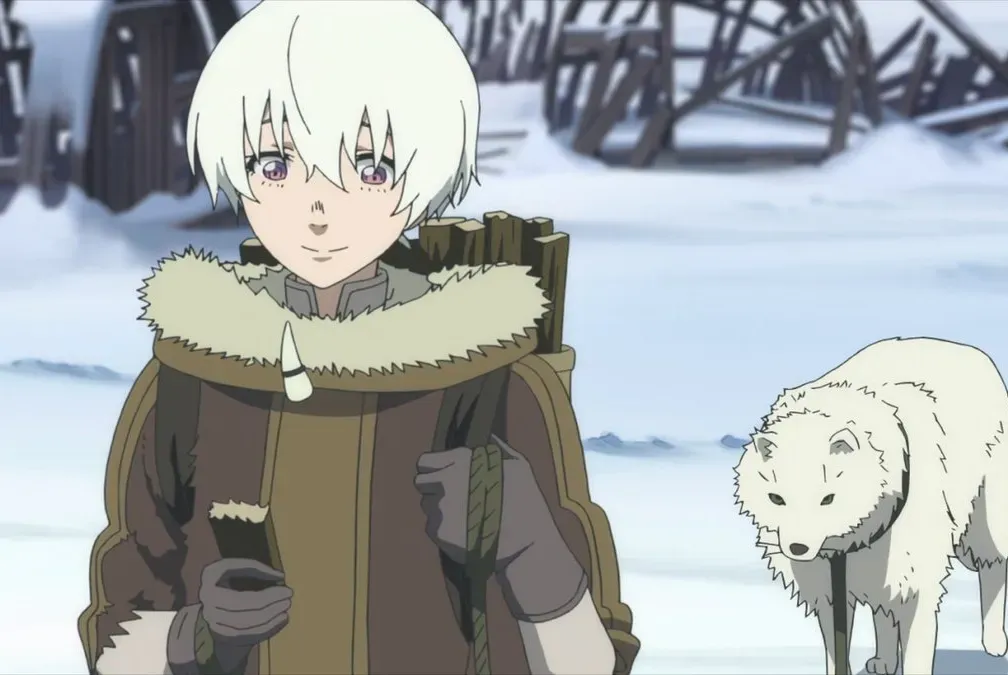
Ahora, si existe algo que el anime logra de manera excepcional, es la gestión de las emociones. Hazte preparado para llorar, y mucho. Las narrativas de los personajes que Fushi halla son, en su mayoría, conmovedoras y con desenlaces trágicos. El primer episodio con el niño y el lobo ya representa un impacto emocional de gran dificultad para reponerse. Y eso sucede de manera repetitiva una y otra vez. Aunque esto es un aspecto destacado, ya que crea un vínculo intenso con los personajes, comprendo que para algunos espectadores puede resultar excesivo. He leído críticas que indican que el continuo ciclo de encuentros y pérdidas puede tornarse algo monótono o incluso manipulador a nivel emocional, y no puedo negar que, en algunos arcos, experimenté un leve agotamiento de la tristeza.
Now, if there is one thing that anime achieves exceptionally well, it is the management of emotions. Be prepared to cry, and a lot. The narratives of the characters that Fushi encounters are, for the most part, poignant and with tragic outcomes. The first episode with the boy and the wolf already represents an emotional impact of great difficulty to recover. And that happens repeatedly over and over again. While this is a highlight, as it creates an intense bond with the characters, I understand that for some viewers it may be excessive. I have read reviews that indicate that the continuous cycle of encounters and losses can become somewhat monotonous or even emotionally manipulative, and I can't deny that, in some arcs, I experienced a slight exhaustion of sadness.
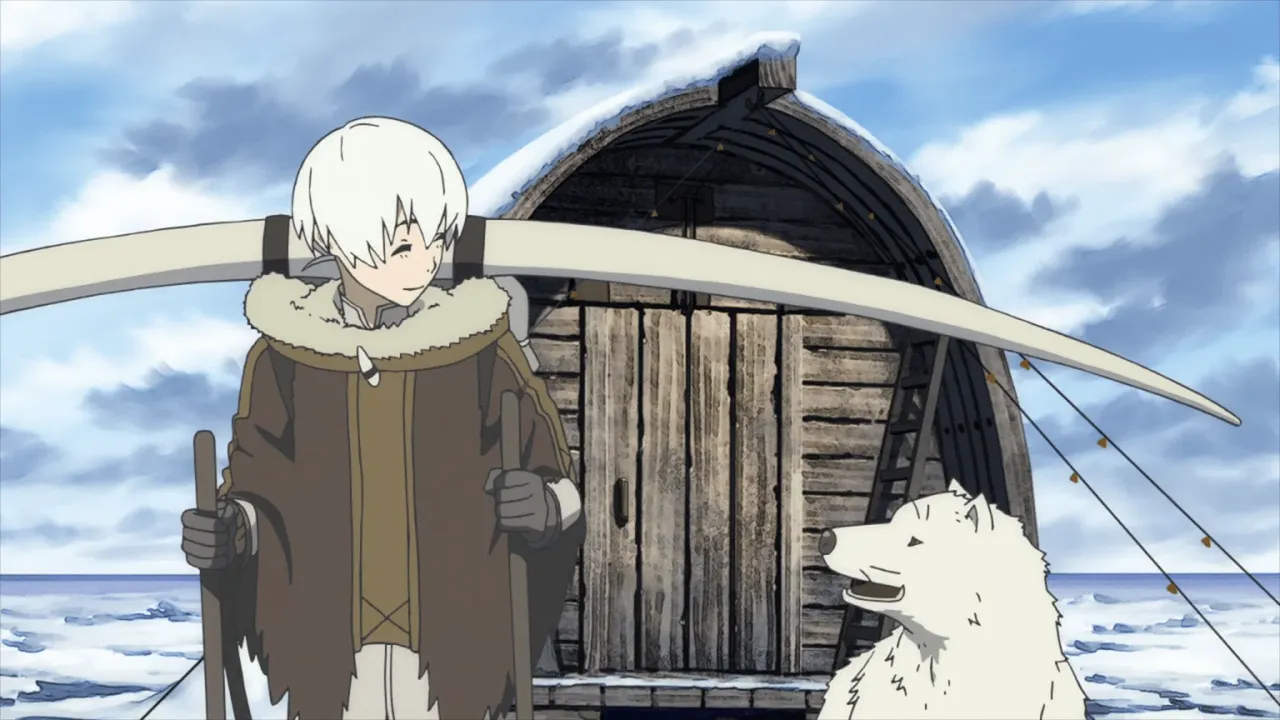
Otro aspecto que considero brillante es la ilustración del desarrollo de Fushi. No se trata de una evolución continua ni impecable. Comete fallos, experimenta frustración y, en ocasiones, parece no captar la complejidad del ser humano. La transformación de un ser meramente instintivo en una entidad capaz de compasión y comprensión profunda es el auténtico motor de la serie. Las "normas" de su existencia, establecidas por el Observador, aunque en ocasiones algo enigmáticas, proporcionan un contexto interesante a su proceso de aprendizaje. No obstante, a medida que la serie progresa y la amenaza de los Knockers se torna más prominente, percibo que la atención se aparta un poco de ese desarrollo personal tan cercano para enfocarse en la acción y la táctica.
Another aspect that I consider brilliant is the illustration of Fushi's development. It is not a continuous or flawless evolution. He makes mistakes, experiences frustration and, at times, does not seem to grasp the complexity of being human. The transformation from a merely instinctive being into an entity capable of compassion and deep understanding is the real driving force of the series. The "rules" of their existence, established by the Observer, while at times somewhat enigmatic, provide an interesting context to their learning process. However, as the series progresses and the threat of the Knockers becomes more prominent, I sense that the focus shifts a bit away from such close personal development to focus on action and tactics.
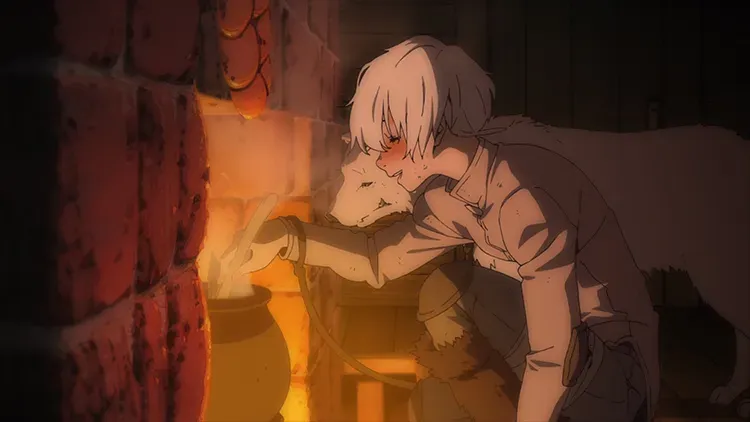
Y en este punto, para mí, el anime presenta algunos altibajos. Aunque los primeros arcos se encuentran fuertemente enfocados en la vivencia personal de Fushi y sus vínculos, las temporadas subsiguientes presentan más personajes y una narrativa más detallada sobre la batalla contra los Knockers. A pesar de que esto añade un nivel de conflicto necesario, en ocasiones sentí que la narrativa se desvíaba un tanto. Frecuentemente, la crítica popular indica que el ritmo puede tornarse incoherente, y concuerdo. Existen instantes de una inmensa belleza y profundidad, seguidos por otros en los que la historia se detiene o las elecciones de los personajes parecen ser un poco obligadas para progresar.
And at this point, for me, the anime presents some ups and downs. While the early arcs are heavily focused on Fushi's personal experiences and their bond, subsequent seasons feature more characters and a more detailed narrative about the battle against the Knockers. Although this adds a necessary level of conflict, at times I felt the narrative wandered somewhat. Frequently, popular criticism indicates that the pacing can become inconsistent, and I agree. There are moments of immense beauty and depth, followed by others where the story grinds to a halt or the characters' choices seem a bit forced to progress.
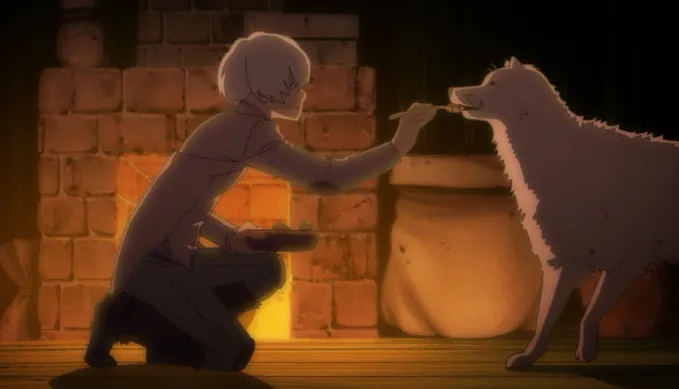
Aunque existen pequeñas objeciones, mi perspectiva global sobre To Your Eternity es bastante favorable. Es una serie que te provoca una reflexión sobre la vida, la muerte, el objetivo y la vinculación humana. No es un anime destinado a buscar algo sencillo, pero si estás preparado para adentrarte en una trama que te reta emocionalmente y te provoca reflexión, te garantizo que te dejará una impresión perdurable. Es una de esas creaciones que permanecen en tu memoria mucho después de finalizar su observación, debido a cómo indaga en la esencia de la existencia y la ineludibilidad de la transformación.
Although there are minor quibbles, my overall perspective on To Your Eternity is quite favorable. It's a series that provokes you to reflect on life, death, purpose, and human bonding. It's not an anime meant to look for something simple, but if you're prepared to delve into an emotionally challenging and thought-provoking plot, I guarantee it will leave a lasting impression on you. It is one of those creations that remain in your memory long after you finish watching it, because of how it probes into the essence of existence and the inescapability of transformation.

¡Gracias por leer!
¡Muchas, muchas gracias por pasarte y llegar hasta aquí! No pensé que vería esta serie, o que la terminaría, pero logré hacerlo y la verdad es que no me arrepiento; aunque puede llegar a ser un poco lenta, tiene muchas cosas buenas, la verdad. Sin más, ¡nos vemos!
Thank you so, so much for stopping by and making it this far! I didn't think I would watch this series, or finish it, but I managed to do it and the truth is that I don't regret it; although it can get to be a little slow, it has a lot of good things, the truth. Without further ado, see you!
| Traducido con Deepl | Translated with deepl | |
|---|---|---|
| Imagenes de mi autoria | images of my authorship | |
| Portada editada con Canva | Cover edited with Canva |
